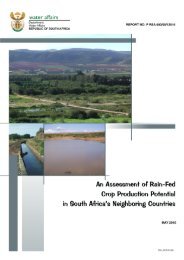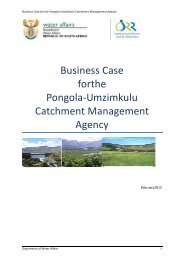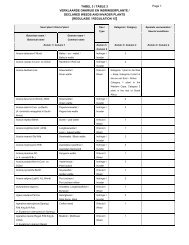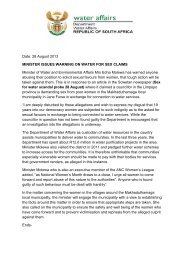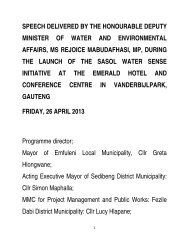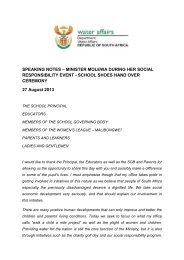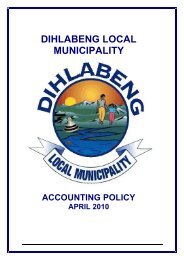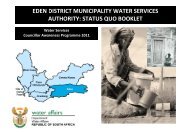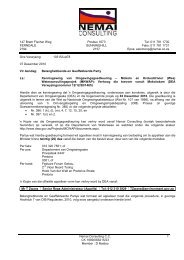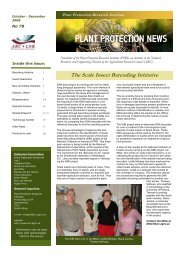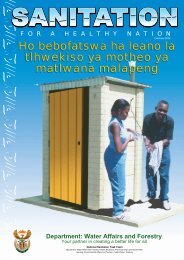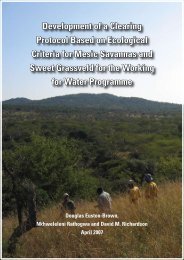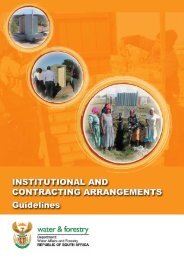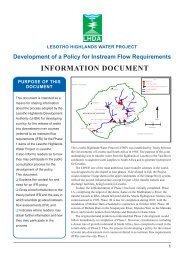Metsi Consultants - DWA Home Page
Metsi Consultants - DWA Home Page
Metsi Consultants - DWA Home Page
Create successful ePaper yourself
Turn your PDF publications into a flip-book with our unique Google optimized e-Paper software.
Report No 678-F-001<br />
METSI CONSULTANTS: SUMMARY OF MAIN FINDINGS FOR PHASE 1 DEVELOPMENT<br />
12.4. MANAGEMENT OF THE MONITORING PROGRAMME<br />
The success of the monitoring programme would depend on the rigour of the data collection, and on the manner<br />
in which the data are stored and analysed. There is little point in spending time and money collecting data, if<br />
these are not collected, archived, analysed and interpreted correctly. The following recommendations are thus<br />
made:<br />
a monitoring programme manager be appointed, who would be responsible for the co-ordination of the<br />
monitoring team and management of the programme;<br />
dedicated specialists be appointed to take responsibility for specific aspects of the monitoring<br />
programme;<br />
each member of the monitoring team keep a record of monitoring methods;<br />
quality control of all data and data-collection methods be applied by the monitoring team, and should be<br />
the responsibility of the Monitoring Programme Manager;<br />
a database be developed and housed at LHDA to store the data generated by the monitoring<br />
programme. This database should be updated annually and should allow easy access to, and<br />
interrogation of, the data. The database should link with other international databases currently being<br />
developed, which relate to IFRs and river condition. An example of such a database is the RIVERS<br />
DATABASE currently being developed by Southern Waters for the National Rivers Health Programme in<br />
South Africa.<br />
the monitoring programme be audited annually (ideally by an independent group of specialists referred<br />
to here as the Monitoring Steering Committee) to verify:<br />
the data are being collected at the stipulated intervals;<br />
the samples are being correctly analyzed;<br />
any laboratories undertaking sample analysis are performing their tasks correctly;<br />
the data are being stored in an efficient manner, and interpreted correctly;<br />
the IFR is achieving the predicted river conditions, with the predicted social and economic costs.<br />
the Monitoring Steering Committee consist of three members, one from each of the disciplines of<br />
sociology, ecology and water-resource management;<br />
the monitoring programme be refined at intervals, if necessary.<br />
If the IFR is not meeting its objectives there should be the twin facilities of being able to revise either the IFR<br />
being released, or the desired river condition it is meant to achieve.<br />
IFR monitoring is a new field of science world-wide. For the foreseeable future IFR monitoring programmes would<br />
be required not only to be refined on an ongoing basis using data collected as part of them, but also to take<br />
cognisance of developments and trends in the field of environmental flow monitoring.<br />
72



